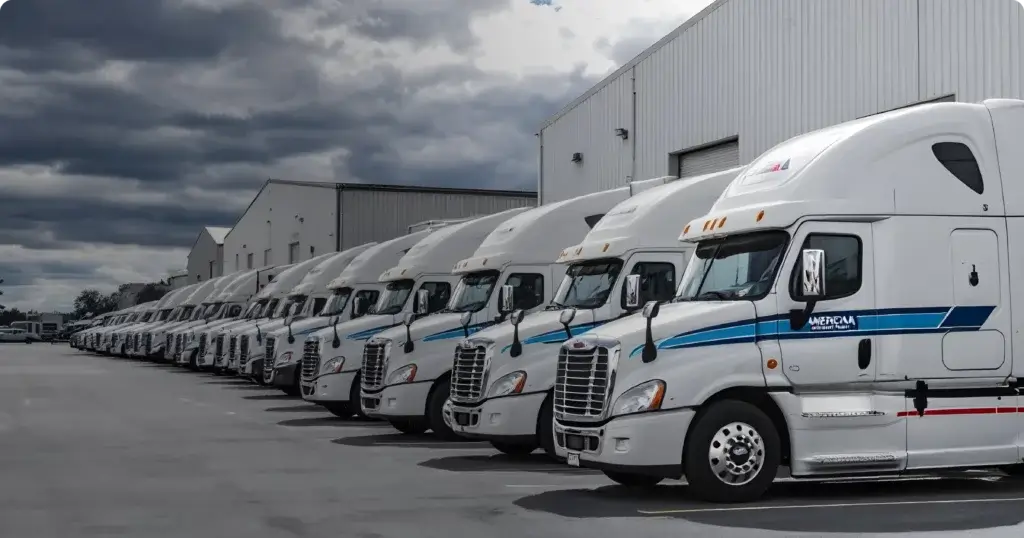Winters can be troublesome for truckers. Driving on the frost-covered roads amidst extreme weather invites unfortunate accidents if drivers are not super-careful. Nearly 22% of motor vehicle accidents are caused by weather conditions, leading to more than 5,000 deaths and half-a-million injuries each year.
The challenge for truckers is even more extreme because trailers and semi-trailers are heavily-weighted and may cross 80,000 pounds when fully loaded. Such heavyweight vehicles can be difficult to control on wet roads, thus increasing the chances of accidents. And while we all love watching “Ice Road Truckers” being in a real-life version of the show isn’t everyone’s cup of hot cocoa.

Over 71% of freight is carried by trucks in the US, so drivers have no choice but to be out and about all year round. Of course, they should be extra careful on the roads in winter. It does not matter whether you are a seasoned driver or an amateur one. Some basic rules need to be followed, and precautions are taken -by everyone.
Let us help you understand some measures that ensure safety on the roads.
Regular inspections are a must!
Inspect the truck every time before setting off on your journey and after reaching the destination. Look for tire pressure and balance, wiper blades, lights, fluid levels, and defrosters. Also, check the battery and charging system, any tech devices that you have installed in the vehicles, and the exhaust pipes. Make sure that the temperature sensors are working properly to prevent freezing of the goods. The lights and wiper blades are your primary weapons to fight adverse weather conditions. Check them before each journey to keep accidents at bay. While checking the tires, look for uneven, weird patterns on the tires that may be signs of wear or poor alignment. Last but not least, clean the windows regularly for enhanced visibility.
Stay hydrated and do not skip meals
Both dehydration and malnutrition can cause concentration issues, like dizziness, nausea, weariness, sluggishness, and fainting. When you are behind the wheel, even the slightest bodily discomfort can increase the chances of accidents. No matter how busy your schedule, make sure you take your food on time and drink enough water throughout the journey. You may keep supplies inside the truck for emergencies if you are driving overnight. In case you have some chronic health issues, make sure to upgrade your medical supplies.
Slow down whenever necessary
Accidents not only damage the goods that you are carrying but also jeopardize life. So, try to slow down amidst unsuitable climatic conditions, like blizzards, excessive snow, and during the night. Most truck accidents occur due to speed issues. It is difficult to fight the urge to drive faster on empty roads, but (as you know) it is even harder to apply the brakes or shift the vehicle while facing obstructions. And if the road is covered with snow, bringing a heavy truck to a halt instantly is nearly impossible. So, why take that risk? Go slow and steady on the winter roads to avoid accidents. Also, maintain a consistent speed to increase the braking distance on frozen roads.
Know about the potential hazards
If you do not have much experience of driving in winter, you should know all about the common winter hazards before starting your journey. Read on!
- Frozen bridges – To avoid spinning out or losing control of the vehicle, you should approach these structures carefully. If possible, take alternative routes, as it may be quite confusing to understand their condition while frozen.
- Black ice – The thin layer of ice can make the roads look wet and cause severe accidents if you accidentally drive over it. Look for ice sprays from the tires, and if they stop, chances are, you may have encountered black ice. Do not drive further, and carefully move your vehicle.
- Fog – One of the most troublesome weather conditions in the cold season, fog impairs visibility. It is better not to travel in extreme foggy weather when pileups on the highways are common.
While driving in winter, you should be prepared for anything, as the weather changes dramatically. You may start on a sunny, bright day, but soon it may turn cloudy and start to snow. So, keep some equipment in your truck to prevent the changing climate from affecting your schedule. Tools like a shovel, ice-scraper, jump cables, flashlight, and de-icer can help you combat most situations. You can keep a warm blanket and some extra clothes to prevent catching a cold. It’s better to be safe than sorry.










